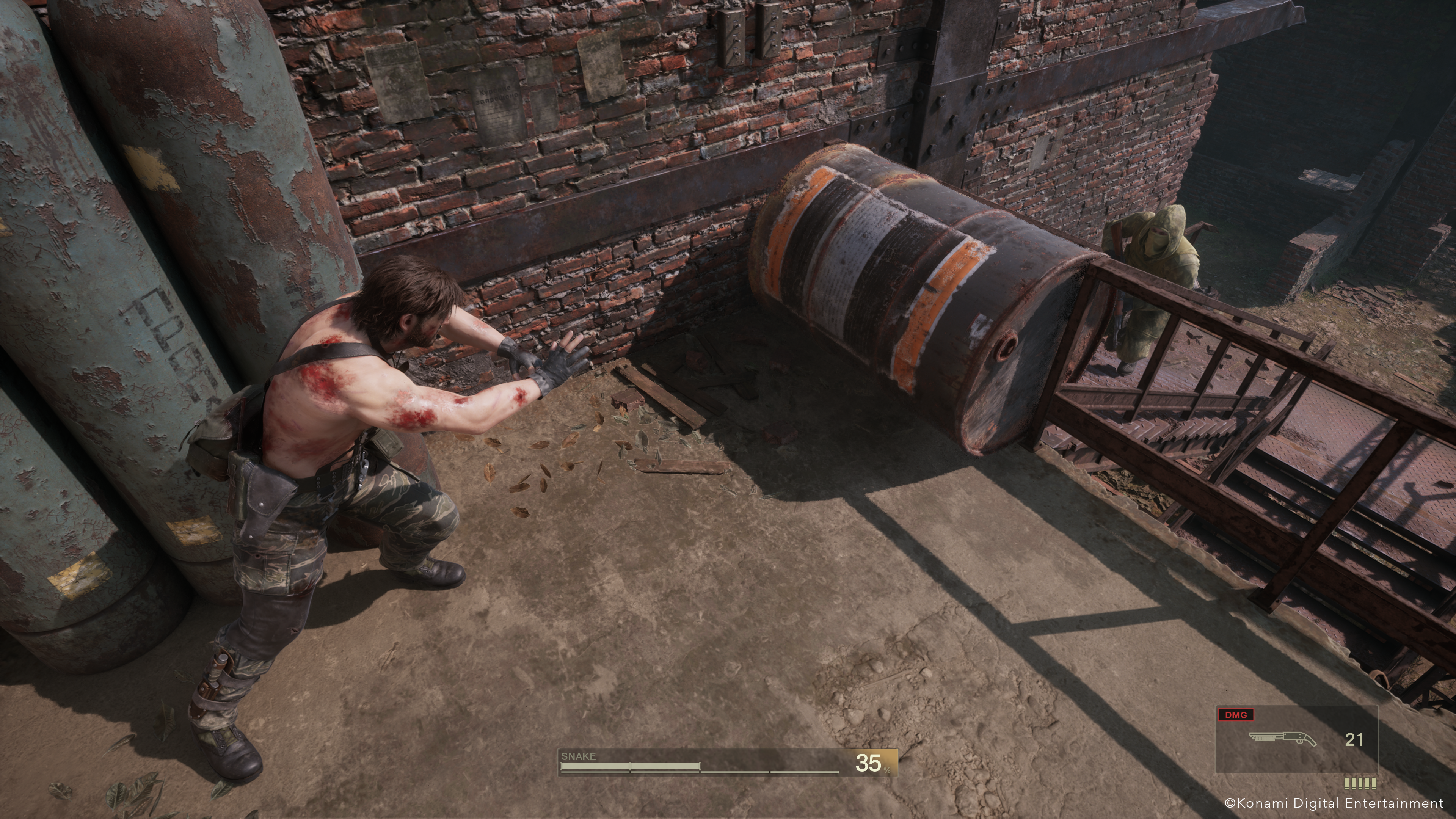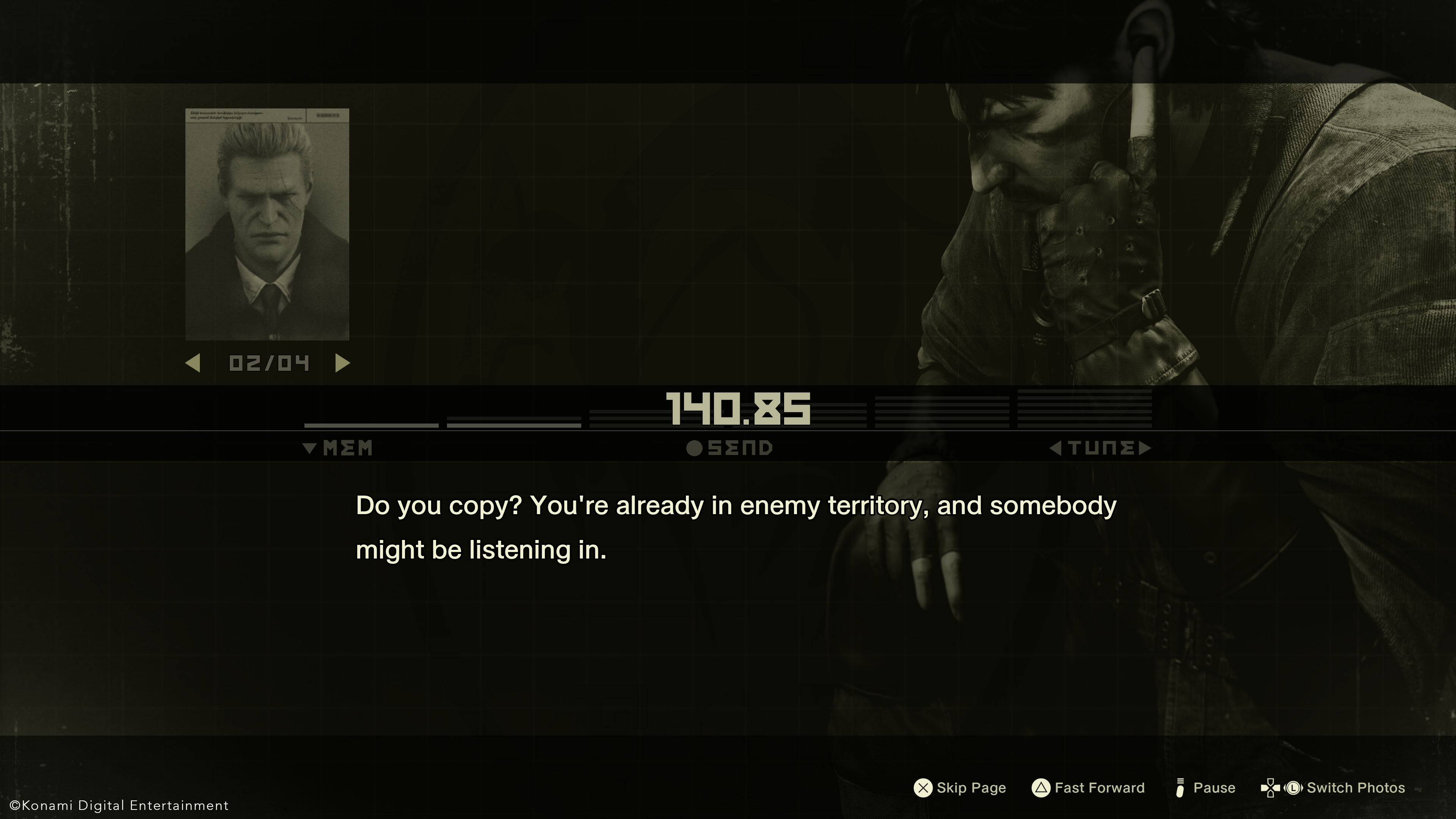
It’s been less than a year since Konami released Metal Gear Solid: Master Collection, a compilation that keeps the first five games in the series playable on modern hardware. That easy availability is hardly a given thanks to the wider industry’s disregard for game preservation. But the collection’s technical limitations and lack of modernization left some fans cynical.
MGS Delta: Snake Eater, a remade version of Metal Gear Solid 3, is a different approach. “There’s a whole new generation of gamers who are not familiar with the Metal Gear series,” Konami producer Noriaki Okamura told me at a recent preview event for the game. Bringing the series to this modern audience, he said, was an exercise in “drawing the line of what we should and shouldn’t alter to make sure that it feels modern but still nostalgic.”
The changes are mostly cosmetic. Konami’s presentation at the game’s hands-on event in London focuses on the fact that 2020s technology can create much-improved facial expressions and foliage; so, yes, Snake scowling around the jungle looks great. The control system has also been updated for modern sensibilities, but the classic system is preserved for the dedicated or curious.
One mechanical addition is lasting damage. If Snake gets shot, that scar will stay with him throughout the game. I’m a fan of the concept, but I didn’t get to see how far it would go. In playing through the game’s opening mission, Virtuous, I have to admit my less-than-sneaky Snake got shot plenty of times, but I didn’t notice anything distinctive beyond persistent bloodstains.

As for what’s staying the same, Okamura says Konami “definitely didn’t want to alter any of the story or world.” He calls MGS3 one of his favorite games. But it’s not a decision without a little defensiveness: When asked why the story still resonates for him personally and for fans in general 20 years on, Okamura didn’t answer directly, instead stressing that Konami does “recognize that some of the expressions in the game could be outdated.” The same disclaimer that appears in the Master Collection also appears at the beginning of Delta.
The outdated elements “have been included without alteration to preserve the historical context in which the game was made and the creator’s original vision,” reads that disclaimer. Okamura also tells me directly that they’re left in “out of respect to the original creator.” And to be clear, I don’t have a problem with the decision to preserve the narrative as-is, nor the inclusion of a disclaimer. The repeated references to Metal Gear writer and director Hideo Kojima without naming him are more interesting.
Remakes and remasters happen without the involvement of the original developers all the time, but games in general rarely have the level of intense perceived auteurship of the Metal Gear series. And yet, based on my memory of the playtest, unlike MGS3, Delta does not call itself “a Hideo Kojima game.” (I tried to clarify this with Konami PR, but they didn’t reply.) This is fair; hundreds of people worked on Delta and Hideo Kojima did not, directly. (He is still credited multiple times in the opening crawl for the work he did on 3.) Some of the Delta team actually did also work on the Metal Gear series previously, including Okamura himself. And yet even Konami can’t escape the mythologization of Kojima, the “creator” — singular — whom Delta must respect.
It’s been almost 10 years since Konami closed the original Kojima Productions. Other than the Master Collection, the only Metal Gear release was Metal Gear Survive, which was poorly received and seems to have had disappointing sales numbers. Okamura says that the lesson Konami has learned from that experience is to ask “what do the fans actually want and what should we be offering to those fans?”

The answer, implicitly, is that fans want what Kojima and his team made. And on that question alone, I think that Delta is a fine way to give it to them. It’s very close to the original, down to the voice lines being reused, and where things have changed, the modernization feels tactful. Its designers’ goal is to give returning players nostalgia and to faithfully allow new players a similar-feeling entry into the series, and it will likely succeed. Including options like the classic controls is also valuable, and this project seems more likely to bring new fans into the series than the Master Collection. Having both available is broadly a best-of-both-worlds situation when it comes to game preservation.
Ultimately, though, Konami capitalizing on games made by a studio it shuttered isn’t a benevolent offering handed down without strings to the platonic concept of the fan. “What fans want” is a more pleasant framing than “what people will spend money on,” but it’s also a self-evident synonym. In the opening to Delta, Snake says that he is devoted to “the President and the top brass.” If they get replaced, no problem. “I follow the will of the leader, no matter who’s in charge.” In the same way, it probably doesn’t matter to most people who is benefitting from Delta’s existence.
But in the ongoing remake culture — the way art is being held in IP for the C-suite to endlessly wring out, and the massive cascade of layoffs and studio closures of the past couple of years — the tension between who made something and who has the right to benefit from recreating it is only likely to increase. Given that MGS3 was chosen as an on-ramp for a new generation of Metal Gear players, being the first chronologically in the series, this probably won’t be the only time Konami’s developers are in this situation. And in that greater context, no matter how respectful Delta is, that tension will still remain.
Disclosure: This article is based on a preview event held by publisher Konami in London, England on Aug. 12. Konami provided Polygon’s travel and accommodations for the event. You can find additional information about Polygon’s ethics policy here.
